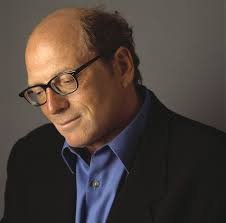A Quote by Howard Baker
It is almost always the cover-up rather than the event that causes trouble.
Related Quotes
If an event can be produced by a number n of different causes, the probabilities of the existence of these causes, given the event (prises de l'événement), are to each other as the probabilities of the event, given the causes: and the probability of each cause is equal to the probability of the event, given that cause, divided by the sum of all the probabilities of the event, given each of the causes.
Faith, then, is not a set of beliefs about the world. It is rather found in the loving embrace of the world. Because the actual existing church has reduced the Crucifixion and Resurrection to religious affirmations held by a certain tribe, rather than expressions of a type of life, the event they testify to has been almost completely eclipsed.
It is tempting when looking at the life of anyone who has committed suicide to read into the decision to die a vastly complex web of reasons; and, of course, such complexity is warranted. No one illness or event causes suicide; and certainly no one knows all, or perhaps even most, of the motivations behind the killing of the self. But psychopathology is almost always there, and its deadliness is fierce. Love, success, and friendship are not always enough to counter the pain and destructiveness of severe mental illness












































